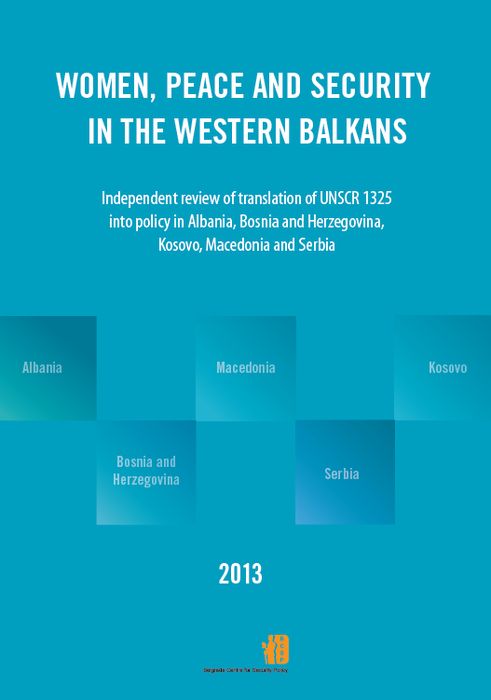Women, Peace and Security in the Western Balkans : Independent review of translation of UNSCR 1325 in to the policies in Albania, Bosnia and Herzegovina, Kosovo, Macedonia and Serbia
Women, Peace and Security in the Western Balkans : Independent review of translation of UNSCR 1325 in to the policies in Albania, Bosnia and Herzegovina, Kosovo, Macedonia and Serbia
Contributor(s): Gorana Odanović (Editor), Sonja Stojanović Gajić (Editor)
Subject(s): Politics, Civil Society, Security and defense, Inter-Ethnic Relations, EU-Approach / EU-Accession / EU-Development, Geopolitics, Politics and Identity, Peace and Conflict Studies, Asylum, Refugees, Migration as Policy-fields
Published by: BCBP Beogradski centar za bezbednosnu politiku
Keywords: UNSCR 1325; gender-based violence; traditional gender roles; Yugoslav wars; gender equality; National Action Plans (NAPs)
Summary/Abstract: The adoption of UNSCR 1325 on Women, Peace, and Security was heavily influenced by the experiences of gender-based violence, exclusion of women-led peace initiatives, and the reinforcement of traditional gender roles during the Yugoslav wars. Women’s civil society organizations (CSOs) and the international community spearheaded efforts to increase women's roles in conflict resolution and security governance. Despite the resolution's adoption, it took over a decade for its principles to be integrated into national policies in the Western Balkans. Women's CSOs played a critical role in advocating for human security and gender equality, although they were often marginalized and labeled as adversaries by nationalist political regimes. Momentum for mainstreaming UNSCR 1325 only grew after international actors supported its agenda in the region, particularly during the resolution's tenth-anniversary preparations. Governments in Bosnia and Herzegovina, Serbia, Croatia, Macedonia, and Kosovo developed National Action Plans (NAPs), while Montenegro and Albania chose alternative approaches. These efforts primarily focused on internal reforms aimed at gender equality and security sector transformation, rather than addressing the legacies of conflict or prioritizing foreign policy. This study reviews the initial implementation of UNSCR 1325 in selected Western Balkan countries, analyzing the effectiveness of NAPs and alternative strategies. It highlights the challenges and opportunities encountered in aligning gender equality with security reforms. The findings offer insights for countries in the region and beyond as they continue to develop or refine their approaches to the Women, Peace, and Security agenda.
- Print-ISBN-13: 978-86-6237-054-9
- Page Count: 132
- Publication Year: 2013
- Language: English
- eBook-PDF
- Table of Content
- Introduction

